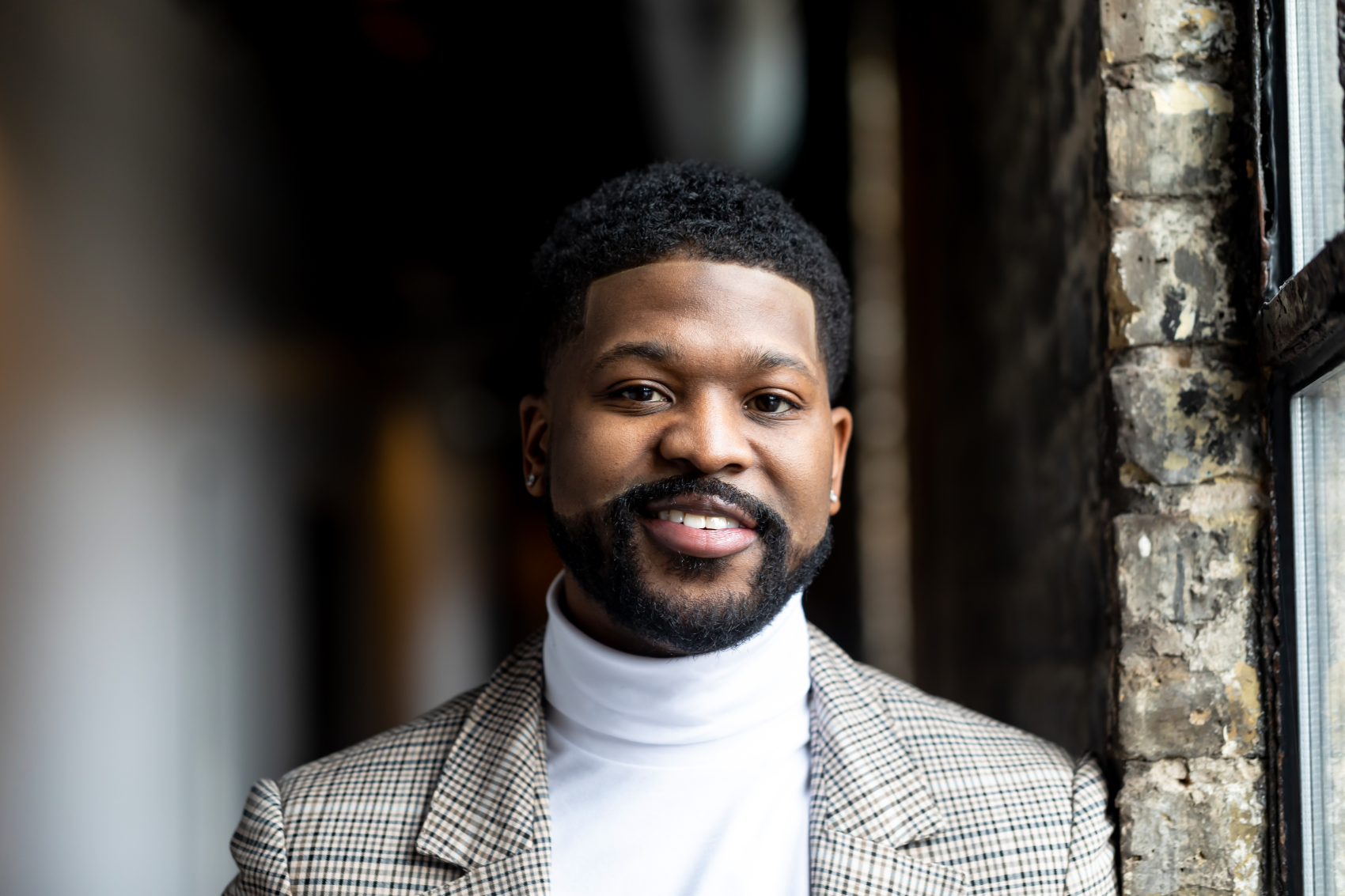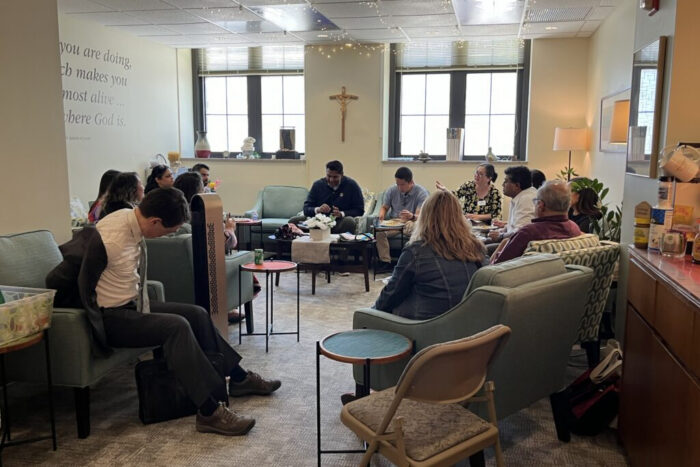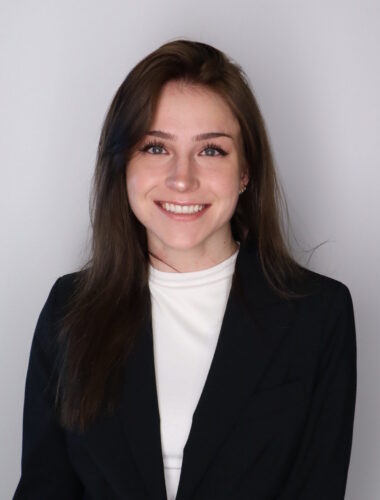Marquette University’s Educational Opportunity Program – Student Support Services Program has assisted over 2,000 first generation college students and students from low-income families in obtaining a college education since 1969. EOP-SSS graduates have established successful careers and become leaders in health, business, law, government and other professions.
Here in a Q&A, Mark Peterson Jr., recruiter and counselor for EOP-SSS, talks about how he helps low-income students from pre-college through graduate education and how his past experience helps shape the kind of recruiter he is today.
First off, thank you for being willing to answer a few questions in the hopes that people get to know you better. Tell me about your position at Marquette and your role in helping students.
As a recruiter and counselor for the Educational Opportunity Program – Student Support Services, I serve by ushering in a significant number of first generation and/or low-income students from Milwaukee into the Marquette community, that they might enjoy a meaningful and profitable educational experience. I work with inner city agencies, guidance counselors, teachers and families to help students become aware of this opportunity and then inspire them to act.
What do you believe is the most important part of your position?
After reading Dr. Arnold Mitchem’s dissertation, the most important part of my position is counseling. The following excerpt from “Marquette University’s Educational Opportunity Program: A Case Study of a Compensatory Education Program in Higher Education” explains why counsel is the most important part of my position: “Without strong motivation, without a confidence based upon a solid appreciation of self-worth, and without a meaningful adjustment to the peculiar situation of the university community, the students in the program will not succeed.” I am here not only getting students admitted, but also ensuring they succeed — which calls for a more hands-on approach in guiding them through the many decisions they will make from admission through graduation.
You work with a lot of students trying to navigate college life. How do you guide them to make the best decision for themselves? What advice do you give them?
I am simply here to help students help themselves. Some advice that I share with students is that with or without support, your respective success depends on you. And it is through counseling that I can help them become more aware of the role they play in their individual success, inspire them to act by taking advantage of all EOP-SSS has to offer and make myself readily available to offer each respective student reassurance when needed.
Do you have a few student success stories you could elaborate on? Maybe a student’s journey that inspired you?
Being that I have only been here five months, I am still learning about students’ backgrounds. But I would like to highlight a student who continues to inspire me. As I left my interview for the position I’m in now, a picture of Alma-Aliyah Tolson flashed across a screen in the lobby of Coughlin Hall — highlighting how she’s, “Striving to raise awareness of the importance of understanding mental illness and to teach and empower others to prioritize mental health.” Months later, I watched her get inducted into the Ronald McNair Scholarship Program. There’s no way she knew at the time, but therapy plays a huge role in my life, so much so that it is something that I want to go on and study one day — meeting her and seeing her get closer to her goals and dreams makes me believe that I can do that, too!
How do you help students see themselves as a part of the Marquette family? Are there ways of connecting first generation students with others on the same journey?
Students I serve are a part of Milwaukee, Marquette and national history. The Educational Opportunity Program began right here on this very campus, and to be a part of that legacy automatically makes you a part of Marquette’s legacy. First generation is an umbrella that houses many different students, but the one thing they all share is an opportunity to experience this collegiate journey with support — whereas others must go through without it. By taking advantage of the summer bridge program, academic tutoring, counseling, financial support, etc., each student has an opportunity to not simply get admitted to a great university, but graduate from a great university.
What’s your role in helping Marquette become a more diverse and inclusive institution for the years ahead?
I plan to learn the foundations of the Educational Opportunity Program and work with other programs across campus to find more creative ways we can become more central to Marquette University. Not only do I plan to help this program, but I also have a great commitment to helping students help themselves. I believe in their dreams, and I want to see as many reach them as I possibly can. My overall mission is to love all. I will continue to reiterate this core value of mine, encouraging everyone that crosses my path to practice empathy and to simply love one another.



